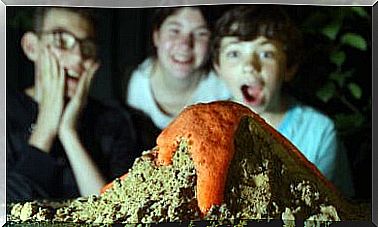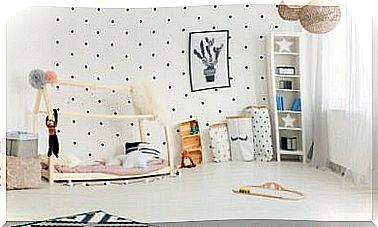Developing Games For 4-year-old Children
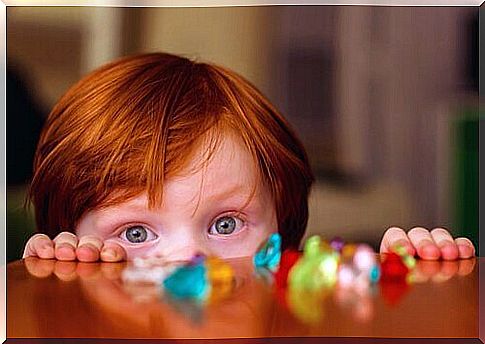
These developmental games for 4-year-old children aim at cognitive, emotional and motor development. They are also a great way to entertain the kids and help them channel their energy throughout the day.
In this article, we share the importance of a child’s emotional and cognitive development in accordance with Piaget’s developmental phases.
We also help you discover which games can be used to stimulate their development in a simple, enjoyable and fun way.
Games for 4-year-old children
Emotional development is the process by which a person discovers his own being and defines his inner “I”. This development includes identity, self-esteem, security and even confidence in one’s abilities.
Emotional development also includes the ability to recognize one’s own feelings as well as those of people in the environment.
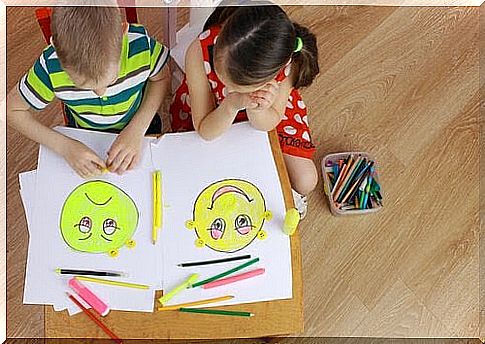
The knowledge for dealing with different problems and situations will be achieved while this emotional development is taking place. The characteristics that 4-year-old children present in relation to their emotional development are as follows:
- The competitive instinct in games becomes more objective. From now on, they will be upset when they lose an activity or very happy when they win.
- They imitate adults. 4-year-olds will try to follow in the footsteps of adults by imitating expressions, repeating what they say or even dressing up in their clothes.
- The famous “Why stage”. Children try to understand everything. So far, you have been able to solve many questions with the simple answer “because I say so.” At this age, children will begin to demand a more justifying response.
Games to stimulate emotional development
The following games and activities will help stimulate your child’s emotional development. These are very simple activities that you can do with them without having to buy new toys or use many materials. Here are some examples:
- Make masks out of cardboard boxes that show different emotions.
- Show your children pictures from when they were younger and explain the feelings they felt at the moment the card was taken.
- While playing with toys, you can help the child notice the toy’s feelings, for example : “See how happy the rabbit is.”
- Play in front of a mirror and make different faces that correspond to different emotions.
- Play a game where you have to guess a person’s feelings.
Stimulate cognitive development
Cognitive development corresponds to the effort that your child makes to understand and act in the world. During this phase of life, they will discover new ways of acting.
This development can be divided into different phases depending on the age of the child.
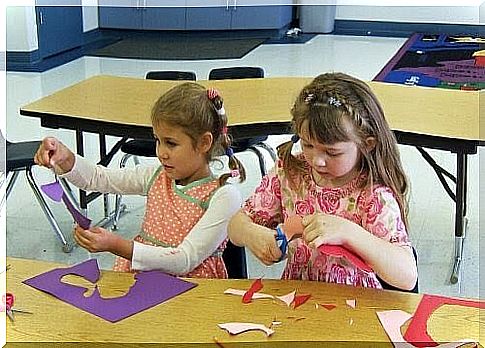
According to Piaget, these phases of cognitive development are:
- From 0 to 24 months : Senso-motor stage. The child’s behavior is mainly motor. They therefore do not think of concepts.
- 2 to 7 years : Preoperative stage. This is the most important step in a child’s cognitive development. It is also the longest phase. During the preparatory phase, the child develops his ability to think and also use language.
- 7 to 11 years : Stage of concrete operations. Now, for example, children can solve simple problems. This will therefore be the most social part of their lives so far. The child will develop logical inductive and deductive reasoning. Their personality will begin to be defined. Moral and ethical development also begins during this phase.
Other games and activities for 4-year-old children

These games and activities will help stimulate the child’s cognitive development. They can be performed individually or with family and friends.
- Remember objects that they have seen in pictures.
- Create similarities between objects when it comes to color and shape.
- Exercises with illustrations where the child must distinguish between:
- Up and down.
- In and out.
- Near or far.
- Small puzzles of 24 pieces or more.
- Complete a simple maze.
- Play games where you imitate your favorite characters.
- Small pieces. Around the age of 4, is the perfect time to focus your child on leisure activities that can develop their interpretive capacity.
These games and activities are all very simple and you can therefore do them with 4-year-old children (or even older ones) without having to go out to buy new toys or materials that you do not have at home.
It is about using the resources that are already in the house.
Keep in mind that the purpose of these games is to stimulate children’s development and also to spend time with them. And yes, you can buy toys and materials to make crafts, but it should not be a constant must to have fun.
